We want to choose not to be “IM apps addicted”, and there is a solution
In our previous article, we briefly illustrated how - to date - a dire situation of “addiction” to Whatsapp has been realized for many people.
However, we have long since started an awareness campaign on the conscious use of messaging apps, hoping that something of what we illustrate may remain.
We know that it is not simple and that each human makes his own decisions and choices.
Choices are always personal.
In the context of instant messaging apps, there is some news.
Regarding Telegram (whose chats are unencrypted, i.e., unencrypted, unless one chooses to create a secret chat), Durov - the founder of Telegram - posted last Friday, June 10, a long message in the Durov’s Telegram channel. In that message, we: “After giving it some thought, we realized that the only way to allow our most demanding fans to get more, while keeping existing features free, is to make the increased limits pay. That’s why this month we are introducing Telegram Premium, a subscription plan that allows anyone to gain additional features, speed, and resources. In addition, it will allow users to support Telegram and join the club that receives the new features first “.
Similarly, the European Commission recently sent a second letter to Whatsapp “reiterating its request to clearly inform consumers about WhatsApp’s business model and, in particular, about the fact that WhatsApp derives revenue from commercial policies related to users’ personal data.” (translation is ours).
In this broad context, we evaluated the solutions we could have used for instant messaging.
As many probably already know, we have been using Matrix for some time, installed it on our server, and are delighted with it.
Without wishing to start “religion wars,” Matrix (you can find an extensive description in this contribution) has specific features that - in our humble opinion - make it a broader tool than just instant messaging.
We believe an instant messaging system should be simple, fast, and secure for the user.
Therefore, our focus has been on the XMPP protocol, which we have also already described in the contribution titled “XMPP: the secure communication protocol that respects privacy” and to which we refer for possible further study.

There is Snikket among the many resources based on the XMPP protocol. We have been following it for some time now, piqued our interest, so much so that we decided to install it on one of our servers.
To date, we express our satisfaction with Snikket, wishing for further improvements, and with our public congratulations to the developers and especially to MattJ: Kudos
Snikket
Snikket is an “ambitious project to realize a new type of messaging platform based on XMPP.”

Snikket is open source, and you can see the project on GitHub here: https://github.com/snikket-im.
Snikket can be used with a hosting service (currently in beta) or by installation on your server. In the latter case, we should note that Snikket is easy to install, being dockerized; any installation information is available on the Snikket website here: https://snikket.org/service/quickstart/;
The advantage of Snikket over other XMPP solutions such as eJabberd or Openfire is the simplicity of installation that even those with little computer skills can accomplish. In addition, the administration is simplified.
Snikket, as well as any other XMPP platform, does not require a phone number or additional personal information for account creation but simply a username and password.
Once Snikket is installed on the server (hosted or self-hosted), you can create accounts. An XMPP account is like an e-mail address because it consists of a username and domain (e.g., alice@domain.com).
Account creation on Snikket is an administrator-only activity. This feature, in our opinion, is an added value because-unlike other systems where the individual user can register independently and create an account-it avoids access to the server for registration only, leaving the decision on which accounts to create to the admin.
Only the admin, in addition to individual account creation, can create users, “circles,” or create invitations for user registration.
“Circles” (circles) are groups among specific users.
For example, the Circle called “family” will belong to only relatives; in the “work” Circle, the colleagues, or the “friends” Circle only certain people. Users in the same Circle will see each other in the contact list. An additional advantage is that each Circle has a group chat in which members are included.
Further crucial is that from the control panel, the admin can access the “system health” service to view the server’s status or send a broadcast message to all users. The latter function is essential if it is necessary to notify all users registered on one’s server.
Regarding privacy, information is available at this page.
In conclusion, the Snikket project - of which we have decided to be supporters - is excellent and, above all, really functional. Undoubtedly, a higher level of maturity needs to be reached, but we are confident that the developers will reach the goal in a short time.
What can you do with Snikket?
As highlighted on the official website, with Snikket, you can:
- send and receive text messages with real-time reading and typing indicators;
- easily share photos, videos, and documents;
- send voice messages;
- privately share your current location;
- group messaging, with a choice of private or public groups, either by creating groups or joining existing groups;
- making high-quality audio and video calls in a secure mode.
We would add that since Snikket adopts the XMPP protocol, you can communicate with any other user with an XMPP account with any provider worldwide. You can communicate with people worldwide if they have an XMPP account.
What apps for Snikket?
Once you have installed the server component and created the account, you need an app to use Snikket.
We will refer here only to the solutions available for iOS and macOS, but solutions are available for other platforms.
App for iOS
Snikket for iOS derives from the open source project of the Siskin IM app.
Below are some images of Snikket for iOS, found in the Apple App Store.
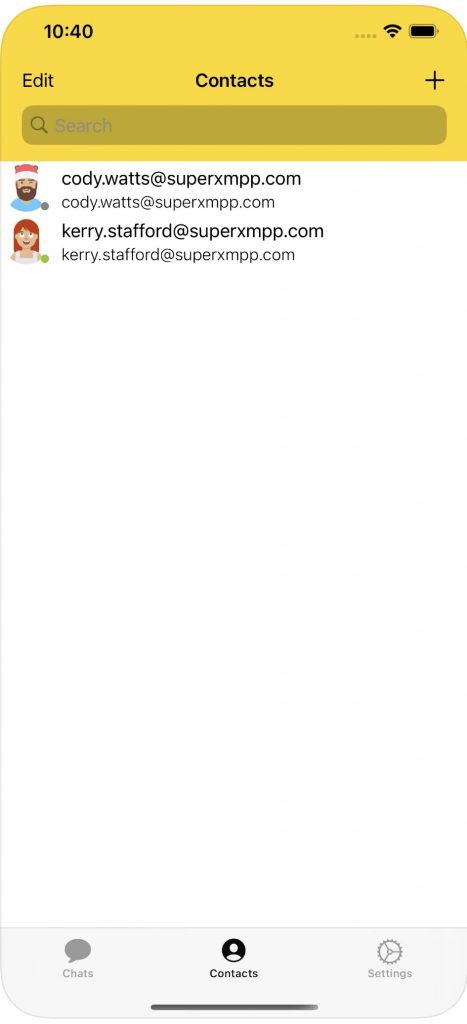
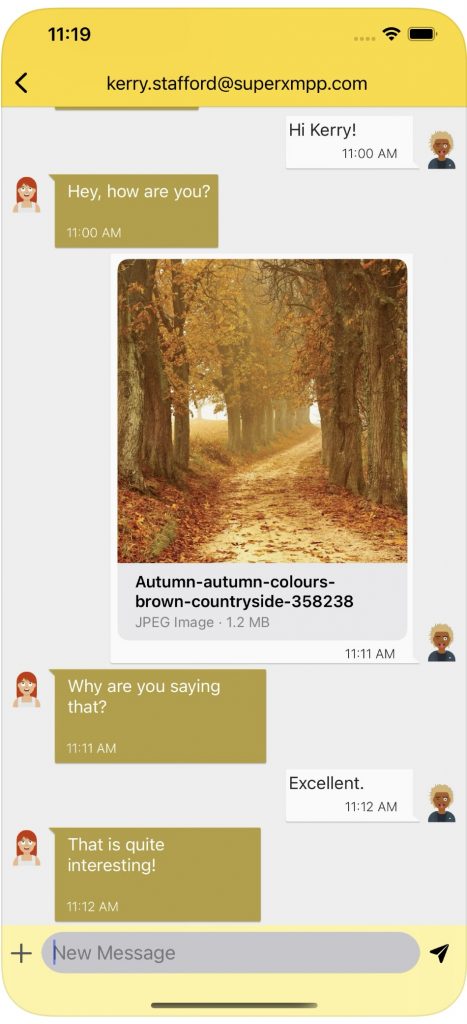
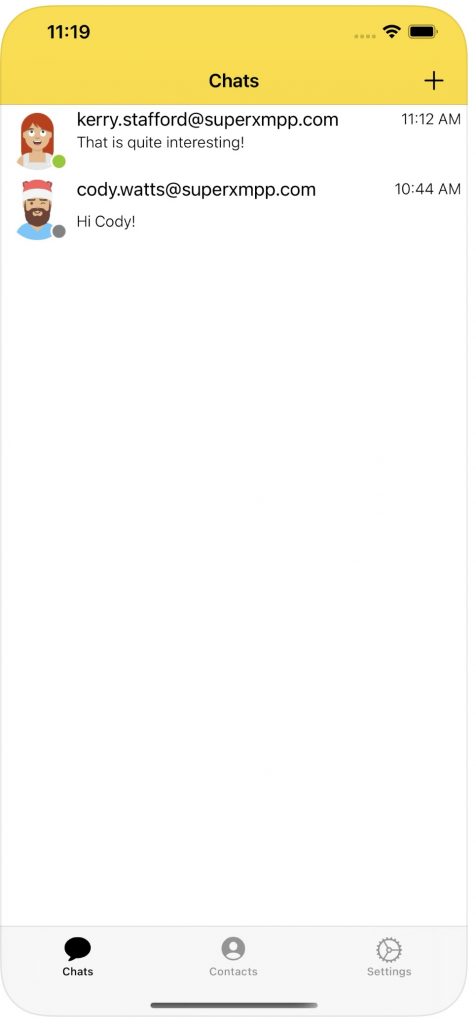
Privacy policy is available at this page.
App for macOS
On macOS systems, the best app, in our experience, is Beagle which is available on the App Store.
Below are a few pictures of the app found on the App Store.
The chat window looks as follows.
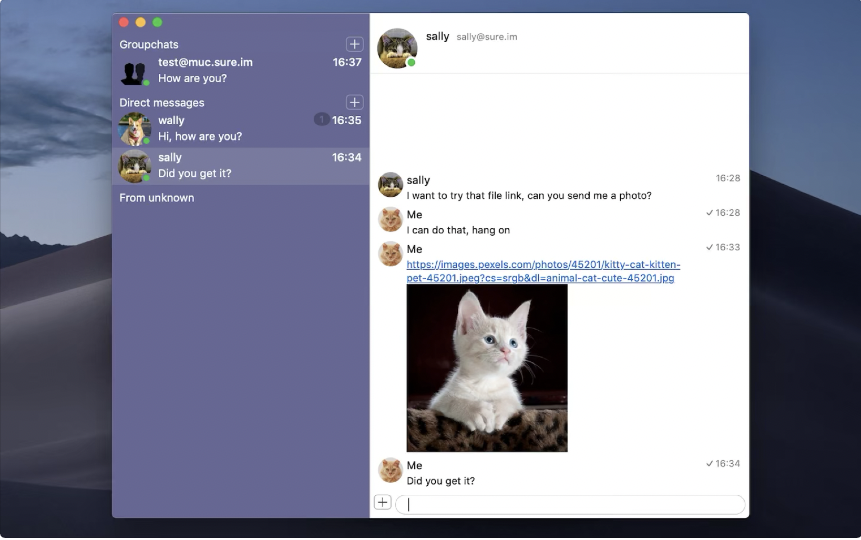
We can browse our contacts as in the following image.
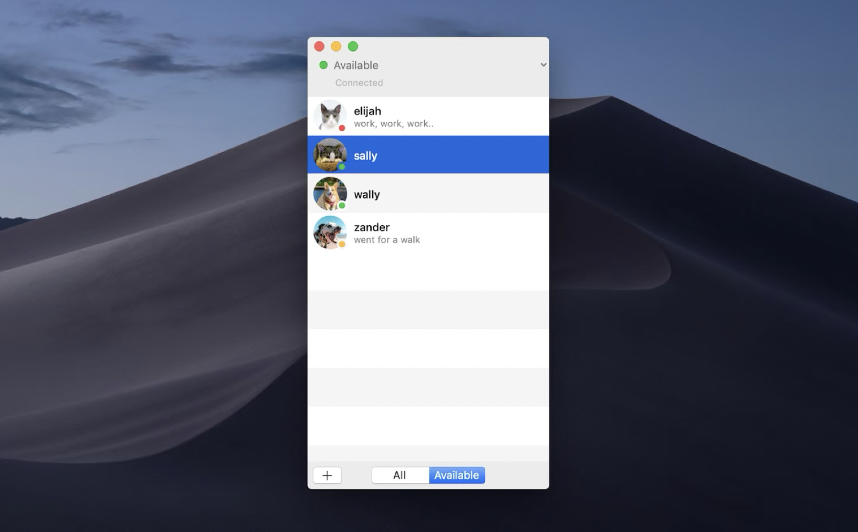
Since we mentioned that calls and video calls are possible with the XMPP protocol, below is an image of a video call.
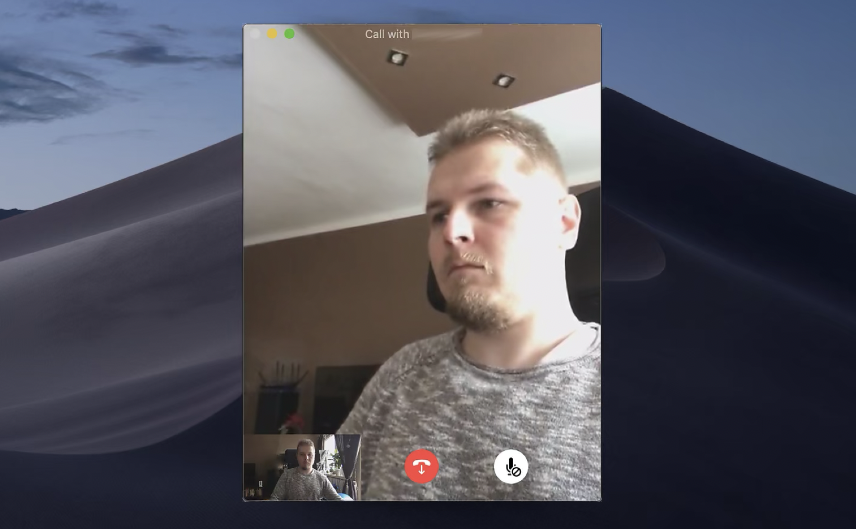
Regarding preferences, you can manage the general settings.
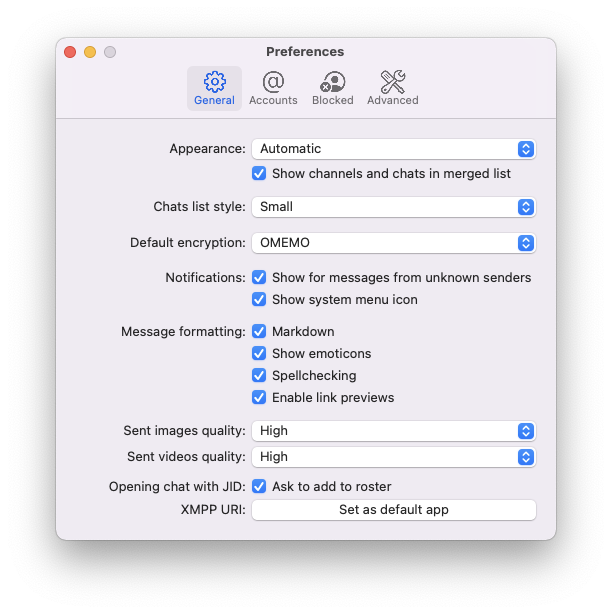
As you can see from the image, you can choose OMEMO for the default encryption.
Then there are the account-related preferences.
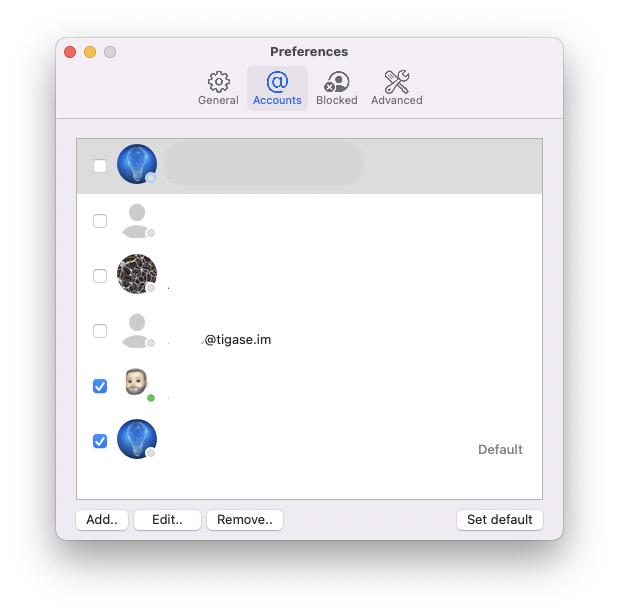
In this section, you can create an account if you do not already have one by clicking on the Add button; a window will appear within which you must enter the account creation information. However, as we have pointed out, on Snikket accounts must be created by the admin; therefore, you cannot create Snikket accounts from the app.
And the advanced ones.
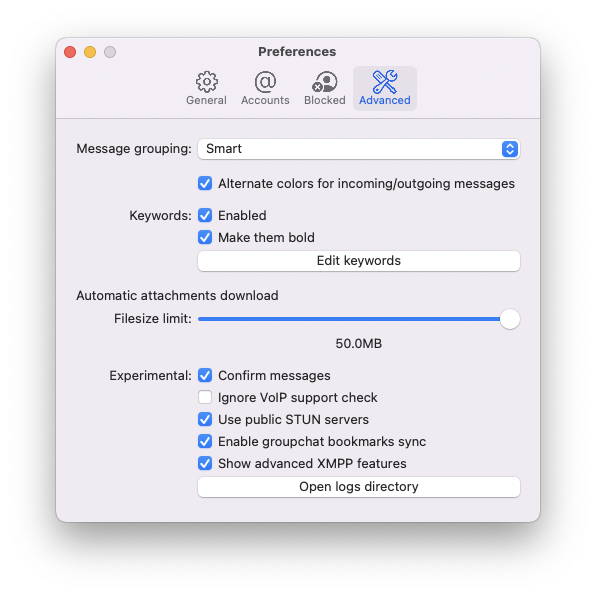
Some privacy aspects
We pointed out at the beginning that XMPP is an open standard protocol.
Regarding the applications, we have described Beagle, Siskin IM, and Snikket, for none of them the developers collect personal data as indicated on the App Store.
The XMPP protocol, including through the OMEMO extension, provides a high level of security that prevents access to the content of messages, encrypted on the server and always transmitted encrypted. For more information on OMEMO, please refer to our contribution.
XMPP is a protocol whose architecture makes it similar to email and, therefore, a decentralized solution.
In creating an XMPP account, the user decides how to create the account and, thus, what will be the username that will make up his XMPP address. In addition, the same user chooses what nickname to use for their account, and that is, what will be the name that others will see. Finally, for both the creation of the account and its use no phone number is required.
The user is not identifiable if they do not want to be.
The possible presence of user identification data in the username may be detected if the same user provides their XMPP address to others with whom to exchange messages.
Only the nickname is displayed if participating in a group chat or channel (the XMPP extension called MUC, short for Multi-User Chat, is used here).
The user is the sole decider of their account and related personal information and data.
The user has control over their data and account, deciding what information to change and whether they wish to delete the account.
Other IM solutions
Other instant messaging solutions do not use the XMPP protocol.
In particular, we mention Matrix, DeltaChat and Session, the latter being blockchain-based.
We hope that our small contribution regarding awareness about proper communication and choosing the right solutions can be received.
If this resource was helpful, you could contribute by
Or donate via
Follow us on Mastodon
Stay tuned!
